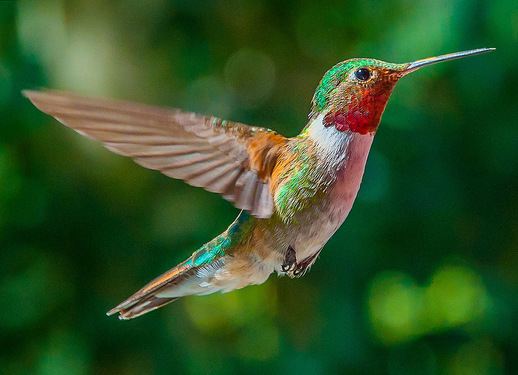|
I am very, very excited to announce a collaboration a colleague and I have been working feverishly on. Shannon Hickman is a fellow clinical therapist who specilizes in sex therapy. In her private practice she treats couples dealing with a myriad of issues related to sex, intimacy and their implications.
Shannon and I are both new mothers. We starting talking about how important it is to us that our girls feel comfortable in their bodies, think about and experience sex without shame and get their information from us (rather than rumors and school yard pals). So, we started digging into the research about how to ensure this happens. Lucky for you, we've distilled all of this down into a parenting series that we're offering to parents who feel as passionate about this issue as we do. We plan to discuss how our own thoughts about sexuality have the tendency to bias our discussion with our kids, we will talk about age- appropriate sexual development, break down the nitty gritty on just how to share information about sex and cover any other questions you can conjure up. It's going to be a great time, join us. If you're interested in a little taste, check out the KSL article we wrote to give you an idea of where were headed. Beyond the Birds and the Bees: Discussing Healthy sexuality with your child. By Shannon Hickman, LCSW and Whitney Barrell, LCSW First published by KSL July 29, 2015 Most parents tend to dread, or at least feel intimidated by, having “the talk” with their child. There are a myriad of resources discussing what topics to introduce at which age, and what is characterized as normal sexual development. The National Child Traumatic Stress Network offers a comprehensive outline of healthy sexual development. But, what we’d like to offer is a broader view of this “talk,” and some factors to consider. Parents typically think of the “talk” as discussing sexual intercourse in a framework of how children are conceived. Rather than just focusing on the mechanics of how babies are born, consider broadening the discussion based on the child’s age and ability to understand concepts. No one knows your child better than you do, and as parents, your deep love and connection to your child makes you the best person to talk with them about sex. Before talking with your child about sex, think through your own values about the role of sex in a relationship, healthy sexuality, what you want your child to understand about their body, and how you want them to feel about their body and their sexuality. Think back to your own experience when learning about sex and intimate relationships and how your parents or others discussed this topic with you. Are there important values or standards that you want to impress upon your child? Consider the biological, emotional, social, relational and spiritual aspects of sex and how your beliefs and values fit into these areas. Was the way your parents shared this information with you successful? Is there something you’d like to do differently? -Healthy Sexuality Often children grow up viewing sex as a physical gratification rather than equating it to love and fulfillment. It is important to remember this is not a one time conversation. It is an ongoing topic of discussion and the more open the child can be, the more support a parent can provide in helping to positively shape their child’s sexuality. With our children being bombarded daily in the media with sex and sexual images, it is more important than ever to help them to develop healthy attitudes about their bodies and sexuality. -Attitudes Identifying your own beliefs and attitudes about sex ahead of time will allow you to work through some of your own anxieties prior to having the discussion with your child. We as adults have often developed unhealthy attitudes about our bodies and sex that may affect the way we communicate with our child during discussions about these topics. -Practice Most parents feel a degree of anxiety in discussing sex with their children. Examine what makes you anxious: is it talking about a private topic; is it that you don’t feel prepared? Keep in mind that the tone or level of anxiety will convey more about how you feel about the topic than the actual content you share. If you want to exude acceptance and openness, make sure your face, and body positioning also conveys this. Plan out what you’d like to tell your child and choose words that feel comfortable for you. -Conversation starters Using everyday life to bring up topics of sex and sexuality are typically the best way to proceed. If you see something on TV with your child that feels like a “teachable moment,” take it. You might ask, “what do you think about all of that?” Focus on what questions they are asking. If your child asks “where did I come from?” He may just be asking which hospital he was born in? Clarify the specific question, then answer it as succinctly as possible. Follow up with “did I answer your question?” Follow their lead. Also consider the importance of strengthening your relationship through special times and activities that promote heartfelt sharing and connection. -Avoid metaphors. Young children are concrete thinkers. Metaphors tend to complicate things. If you are talking about specific body parts or functions of body parts, be as direct as you can, while also keeping in mind the child's developmental stage. It is helpful to use the appropriate names for body parts. This helps the child to begin to understand they do not have to be ashamed or embarrassed about any part of their body. This approach will begin to set the foundation for positive body image and healthy sexuality. -It’s not one talk, it’s many. Rather than sitting down with your child once they reach puberty to talk with them about sex, consider starting early and building on the depth and complexity of this topic. Identify an end goal. Parents may want their child to grow into an adult who is capable of an intimate relationship without feeling ashamed. If this is your goal, work backwards, expounding on experiences and discussions to support your goal. Consider the use of tools such as age appropriate books to help guide you in your discussions. Shannon Hickman, LCSW is a trained sex therapist. Whitney Barrell, LCSW specializes in child therapy. Together they are leading a parenting series on how to talk with your child about healthy sexuality.
0 Comments
"The world is so big, so complicated, so replete with marvels and surprises that it takes years for most people to begin to notice that it is, also, irretrievably broken. We call this period of research “childhood."
There follows a program of renewed inquiry, often involuntary, into the nature and effects of mortality, entropy, heartbreak, violence, failure, cowardice, duplicity, cruelty, and grief; the researcher learns their histories, and their bitter lessons, by heart. Along the way, he or she discovers that the world has been broken for as long as anyone can remember, and struggles to reconcile this fact with the ache of cosmic nostalgia that arises, from time to time, in the researcher’s heart: an intimation of vanished glory, of lost wholeness, a memory of the world unbroken. We call the moment at which this ache first arises “adolescence.” The feeling haunts people all their lives. Everyone, sooner or later, gets a thorough schooling in brokenness. The question becomes: What to do with the pieces? Some people hunker down atop the local pile of ruins and make do, Bedouin tending their goats in the shade of shattered giants. Others set about breaking what remains of the world into bits ever smaller and more jagged, kicking through the rubble like kids running through piles of leaves. And some people, passing among the scattered pieces of that great overturned jigsaw puzzle, start to pick up a piece here, a piece there, with a vague yet irresistible notion that perhaps something might be done about putting the thing back together again..." Words by Michael Chabon. Full article: http://www.nybooks.com/blogs/nyrblog/2013/jan/31/wes-anderson-worlds/ |
Archives
March 2024
Categories
All
|


 RSS Feed
RSS Feed